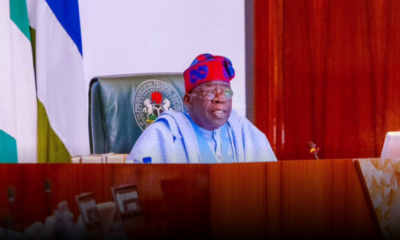Nigeria’s President, Asiwaju Bola Ahmed Tinubu, says leaders of the Economic Community of West African States (ECOWAS) must prioritise diplomacy in their approach to resolving the crisis in the Republic of Niger.
President Tinubu made this known on Thursday in Abuja while delivering his opening remarks at the second ECOWAS extraordinary summit on the socio-political situation in Niger.
ECOWAS held its first session on the development, presided by Tinubu, its chairperson, on July 30.
At the meeting, a resolution was reached to impose several sanctions on Niger over the coup.
Some of the sanctions include a closure of all land and air borders between member countries and Niger, a freeze of all service and energy transactions and deals with all financial institutions in Niger, a travel ban and an asset freeze of the military officials involved in the coup, among others.
The same sanctions apply to family members of military officials and civilians who accept to participate in any institution or government established by the junta, ECOWAS added.
The bloc said in the event that Bazoum was not reinstated within a week from the first summit, all measures necessary to restore constitutional order in Niger, including the use of force, would be taken.
In defiance, the Niger junta spoke against ECOWAS during a large gathering of supporters, on the day the deadline elapsed.
Mohamed Toumba, one of the coup leaders, said the junta was aware of those “lurking in the shadows” who were “plotting subversion” against “the forward march of Niger”, and that the military authorities would not yield to the demands of ECOWAS.
Although Ajuri Ngelale, Tinubu’s spokesperson, had said the option of a military intervention is still on the table, there is still uncertainty as to whether ECOWAS would proceed with its proposed invasion as talks of a military intervention have been met with backlash from many countries and stakeholders.
Speaking at the second summit, Tinubu said it is important to evaluate the effectiveness of the bloc’s interventions and identify any gaps or challenges that may have hindered progress.
“Moreso, in reaffirming our relentless commitment to democracy, human rights, and the well-being of the people of Niger, it is crucial that we prioritize diplomatic negotiations and dialogue as the bedrock of our approach,” he said.
“We must engage all parties involved, including the coup leaders, in earnest discussions to convince them to relinquish power and reinstate President Bazoum.
“It is our duty to exhaust all avenues of engagement to ensure a swift return to constitutional governance in Niger.”
He reminded the leaders that the political crisis in Niger not only poses a threat to the stability of the nation but also has far-reaching implications for the entire West African region.
“By remaining steadfast in our adherence to the principles of democracy, good governance, and the rule of law, we can restore peace, stability, and prosperity in the Republic of Niger, thereby fostering an environment conducive to growth and development for all,” he said.

 BIG STORY2 days ago
BIG STORY2 days ago
 BIG STORY4 days ago
BIG STORY4 days ago
 BIG STORY3 days ago
BIG STORY3 days ago
 BIG STORY4 days ago
BIG STORY4 days ago
 BIG STORY3 days ago
BIG STORY3 days ago
 BIG STORY2 days ago
BIG STORY2 days ago
 BIG STORY1 day ago
BIG STORY1 day ago
 BIG STORY8 hours ago
BIG STORY8 hours ago






















